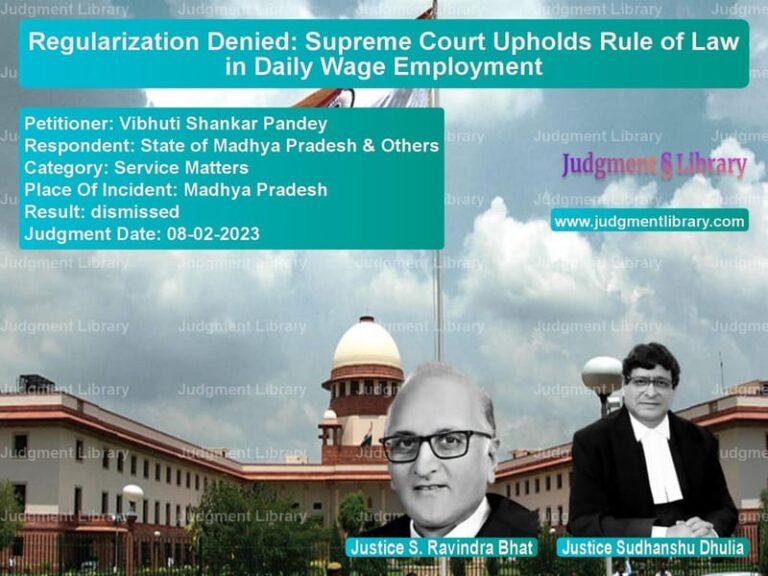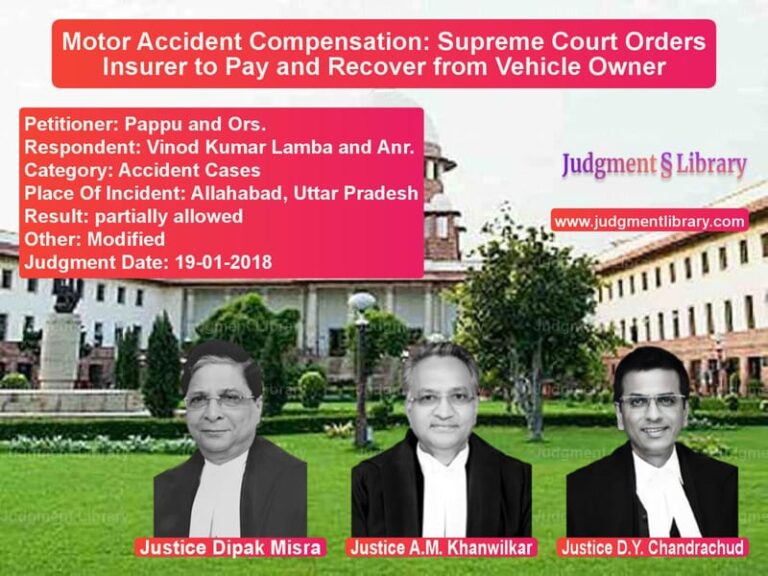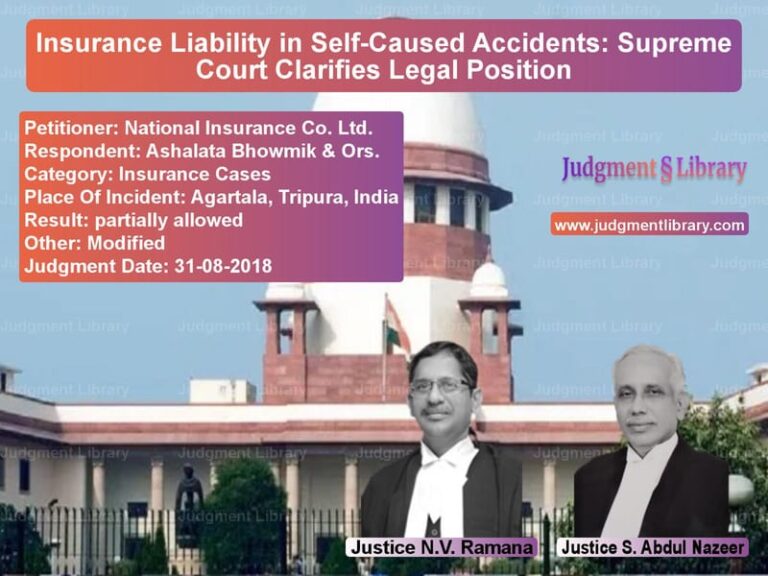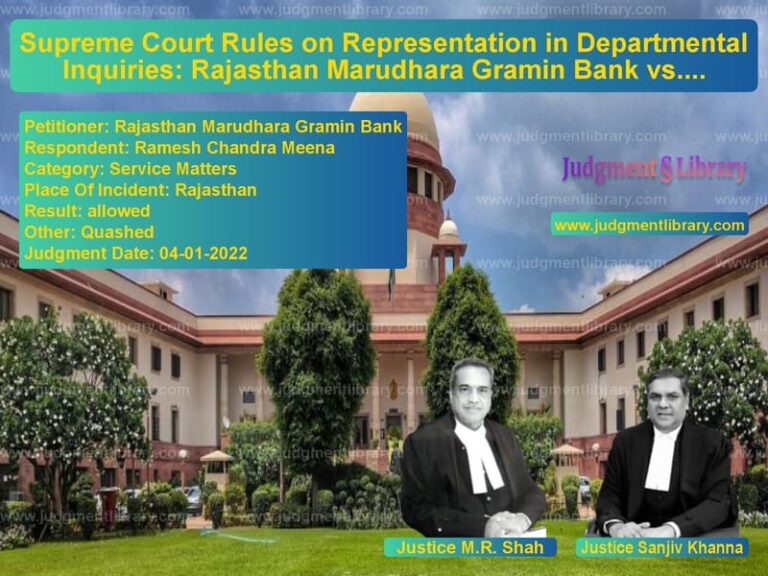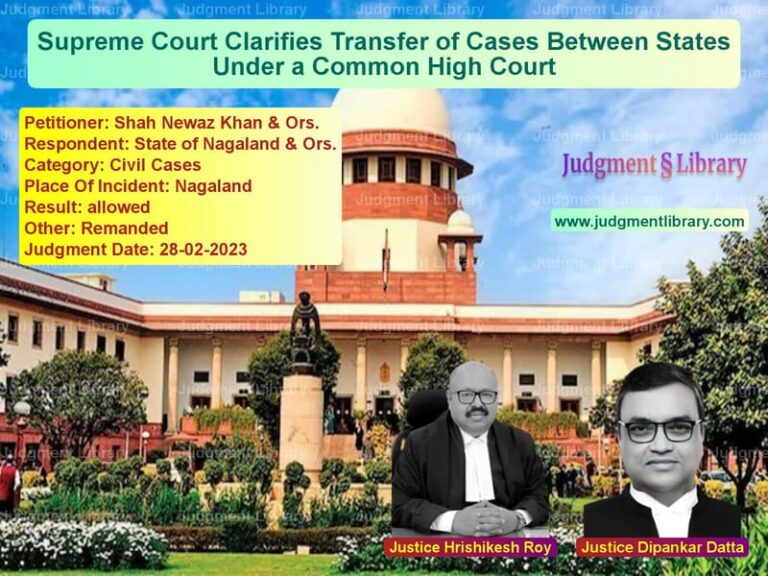Company Law Tribunal’s Authority in Share Transfer Disputes: Key Legal Interpretation
The case of Mackintosh Burn Limited v. Sarkar and Chowdhury Enterprises Private Limited revolves around the refusal to register the transfer of shares and the right of appeal against such refusal under the Companies Act, 2013. This case raises crucial legal questions concerning the jurisdiction of the Company Law Board (now the National Company Law Tribunal) and the authority of a company to reject share transfers.
The matter reached the Supreme Court after the Company Law Board, Kolkata Bench, directed Mackintosh Burn Limited (a government-controlled company) to register the share transfer in favor of Sarkar and Chowdhury Enterprises Private Limited, a shareholder attempting to increase its stake. The decision was later challenged in the Calcutta High Court, which dismissed the appeal. The Supreme Court then reviewed the case and provided clarity on key legal questions related to company law.
Background of the Dispute
The appellant, Mackintosh Burn Limited, is a public company in which the Government of West Bengal holds a majority stake of 51.01%. The respondent, Sarkar and Chowdhury Enterprises Private Limited, initially held 28.54% of the company’s shares. In 2014, the respondent purchased an additional 100 shares, increasing its holding to 39.77%, and sought registration of the transfer.
Mackintosh Burn Limited refused to register the share transfer, citing concerns that the respondent company was controlled by a competitor and that allowing the transfer would not be in the best interests of a government-controlled company.
Arguments by the Petitioner
Mackintosh Burn Limited, the petitioner, argued that:
- The respondent’s company was associated with a competitor in business, which could compromise the interests of the government-controlled company.
- The company had the right to refuse the share transfer under Article 44 of its Articles of Association, which permitted the Board to decline transfers under certain conditions.
- The transfer was part of an attempt by the respondent to take control of the company and gain access to sensitive trade secrets and policy decisions.
- The decision of the Company Law Board failed to consider the company’s right to refuse the transfer under the Companies Act, 2013.
Arguments by the Respondent
The respondent, Sarkar and Chowdhury Enterprises Private Limited, countered that:
- The refusal to register the transfer was arbitrary and unjustified under the Companies Act.
- The company’s shares were freely transferable, and the refusal to register the transfer was a violation of the company’s obligations.
- The Government of West Bengal, holding 51.01% of shares, retained control over the company, and the respondent’s acquisition of additional shares would not affect its control.
- The alleged association with a competitor was irrelevant, as the transfer did not grant the respondent a controlling stake in the company.
Decision of the Company Law Board
The Company Law Board ruled in favor of the respondent and directed the company to register the share transfer, reasoning that:
“Even if the purchase of additional 100 shares by the Petitioner Company is taken into consideration, the total shareholding of the Petitioner Company will be 39.77% only… Thus, there seems to be no impediment in transfer of shares, and hence, the Petitioner Company has the right to get the shares transferred in its name.”
The Board found no valid reason for refusing the transfer and ordered that the shares be registered within ten days.
High Court’s Decision
The Calcutta High Court dismissed the appeal, stating that the Company Law Board had the jurisdiction to entertain the matter. The High Court observed:
“The only question of Law ought to be urged in the proposed appeal is as to whether the Company Law Board lacked authority in receiving the petition under Section 58 of the Companies Act, 2013 beyond the period envisaged in sub-section (4) thereof.”
The court ruled that the matter of limitation was not a strong enough ground to reject the appeal.
Supreme Court’s Analysis and Ruling
The Supreme Court reviewed the legal provisions governing the transfer of shares, particularly Section 58 of the Companies Act, 2013:
“Under Section 58(2), the securities or interest of any member in a public company shall be freely transferable. However, under Section 58(4), it is open to the public company to refuse registration of the transfer of securities for a sufficient cause.”
The Court found that while companies have the right to refuse share transfers, such refusals must be backed by valid reasons. It stated that:
“The contention of the appellant before the Company Law Board that the whole transfer is deceptive and mala fide in the background of the respondent company should have been considered.”
The Court further observed that the Company Law Board had not adequately examined whether the refusal was based on a sufficient cause. It ruled that:
“The order dated 16.09.2015 passed by the Company Law Board, Kolkata Bench, the order dated 15.10.2015 in ACO No. 199 of 2015 in APO No. 448 of 2015, and the order dated 15.09.2017 in RVWO 59 of 2016 and ACO 171 of 2016 in APO 448 of 2015 are set aside.”
The Supreme Court remitted the case back to the National Company Law Tribunal (NCLT) for reconsideration and directed the Tribunal to decide the matter afresh without being influenced by the previous orders.
Key Takeaways
- The Companies Act, 2013, allows public companies to refuse share transfers but only with a valid, legally justifiable cause.
- The refusal must not be arbitrary and should be supported by substantial reasons, such as legal violations or conflicts of interest.
- The Company Law Board (now NCLT) has the authority to review refusals and ensure compliance with the law.
- The Supreme Court’s decision underscores the importance of due process in corporate governance.
Conclusion
This case serves as a precedent for corporate disputes regarding share transfers and the authority of company boards to reject transfers. The final decision by the NCLT will determine the extent to which a company can restrict share transfers based on concerns over competitive interests and company control.
Petitioner Name: Mackintosh Burn LimitedRespondent Name: Sarkar and Chowdhury Enterprises Private LimitedJudgment By: Justice Kurian Joseph, Justice Mohan M. ShantanagoudarPlace Of Incident: KolkataJudgment Date: 27-03-2018
Don’t miss out on the full details! Download the complete judgment in PDF format below and gain valuable insights instantly!
Download Judgment: Mackintosh Burn Limi vs Sarkar and Chowdhury Supreme Court of India Judgment Dated 27-03-2018.pdf
Direct Downlaod Judgment: Direct downlaod this Judgment
See all petitions in Company Law
See all petitions in Corporate Governance
See all petitions in Shareholder Disputes
See all petitions in Judgment by Kurian Joseph
See all petitions in Judgment by Mohan M. Shantanagoudar
See all petitions in Remanded
See all petitions in Remanded
See all petitions in supreme court of India judgments March 2018
See all petitions in 2018 judgments
See all posts in Corporate and Commercial Cases Category
See all allowed petitions in Corporate and Commercial Cases Category
See all Dismissed petitions in Corporate and Commercial Cases Category
See all partially allowed petitions in Corporate and Commercial Cases Category


